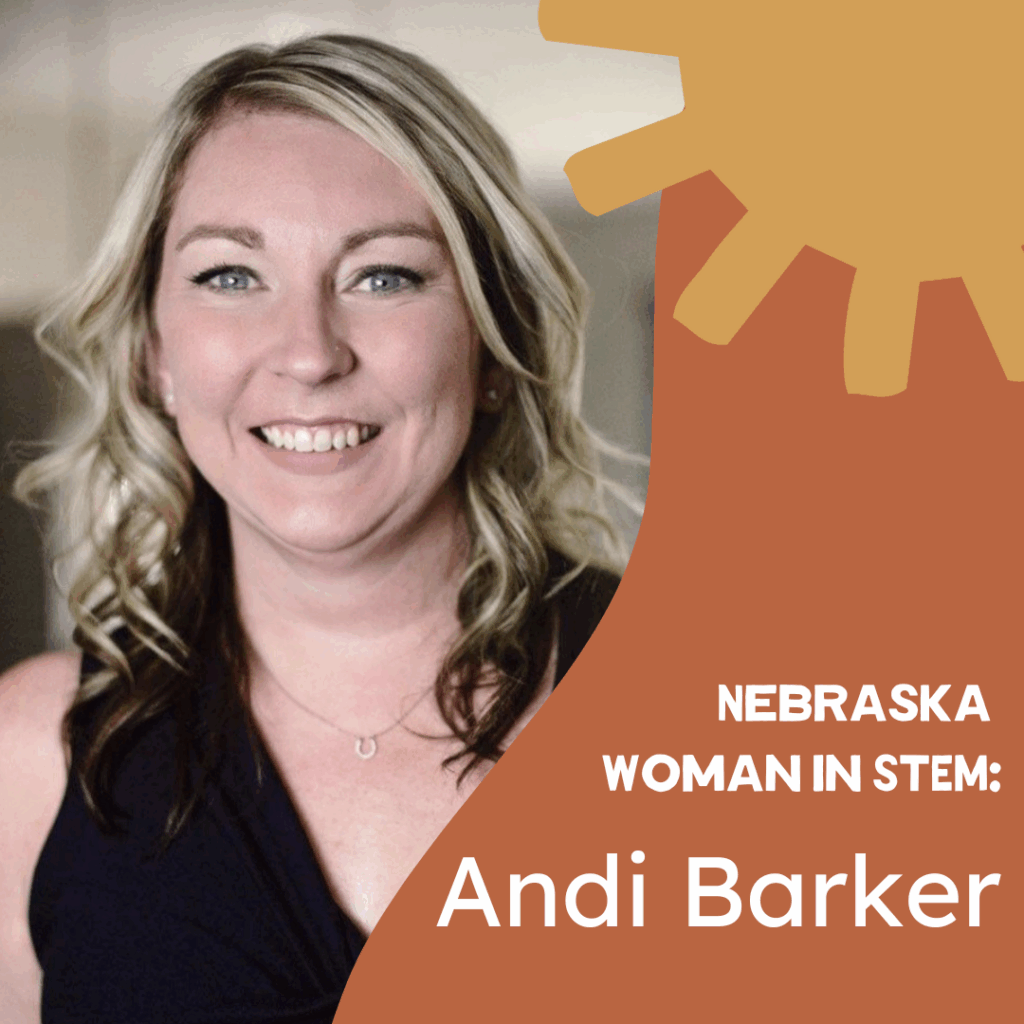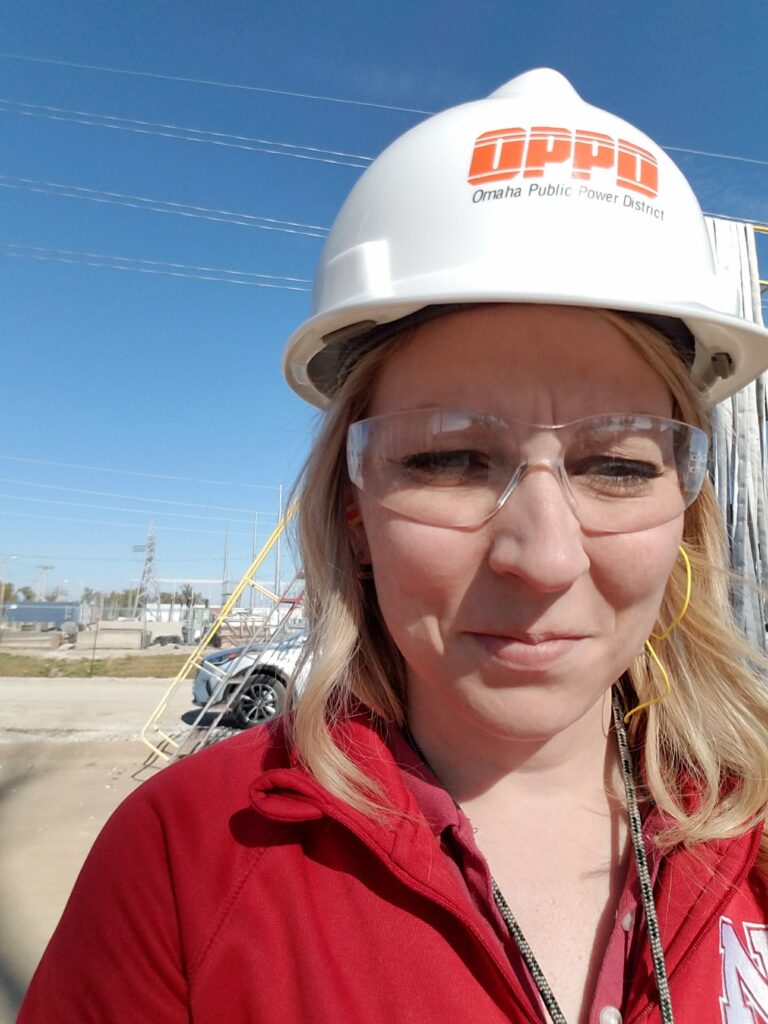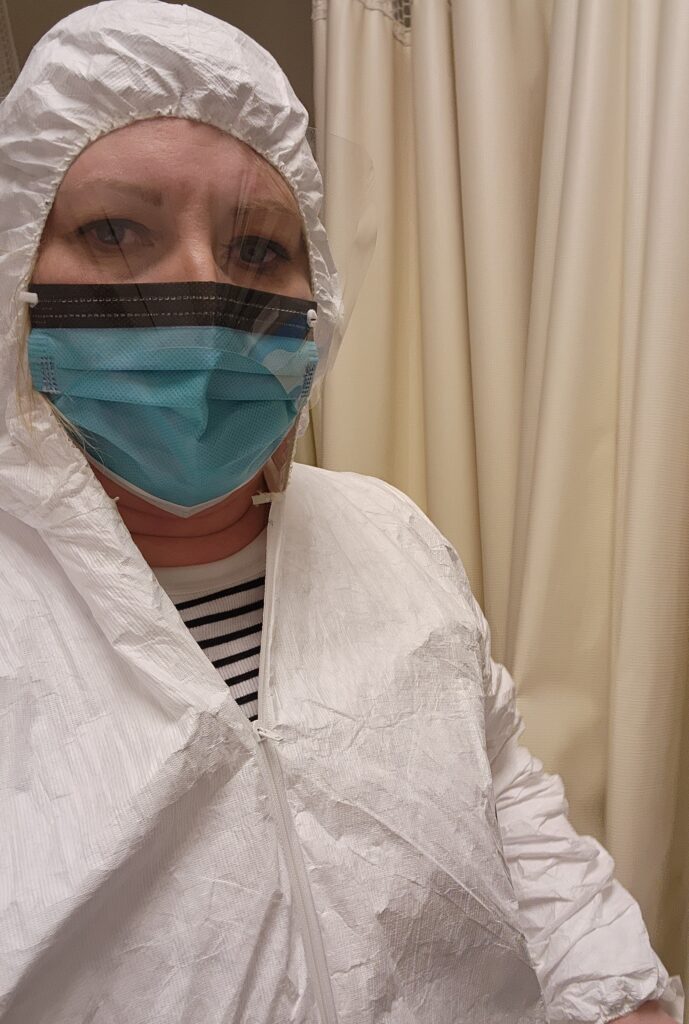Nebraska Women in STEM talked to OPPD’s Andi Barker about her path as one of a few women in radiation health physics.

Nebraska Women in STEM talked to OPPD’s Andi Barker about her path as one of few women in radiation health physics.
“Yes, I’m a woman, and I like physics. I think there’s something powerful in that. I embrace that I’m unique.”
Andi Barker is the Load Forecasting and Analytics Manager at Omaha Public Power District (OPPD). For 12 years, she worked at Fort Calhoun Station, OPPD’s decommissioning nuclear power plant and is one of only a few female Certified Health Physicists (CHP) in Nebraska.
Andi took a winding path into her career. She was a straight A student and valedictorian at Ralston High School and knew that she liked health and science, but didn’t know the right career path. She got a degree from UNMC’s in radiation science technology, and after several winds in the road, eventually got a master’s degree in health physics from Oregon State University.
Degree in hand, she started her career at OPPD as an instructor in 2011. Her job was to teach continuing education and radiation health physics, which is the study of radiation protection.
“Radiation health physics is important to keep people safe in the places we use radiation on purpose, whether it’s for science, research, or medicine. Hospitals and dentists’ offices are big ones and nuclear power.”
During her time as an instructor, she was teaching and building the knowledge needed to become a CHP. Andi is also a Radiological Operations Support Specialist through FEMA.
“If there were to be some radiological incident, I could get called to respond and help assess the damage. So say, God forbid, there was a dirty bomb, or even a spill of something, if it was bad enough, I could respond.”
Andi says the field of nuclear power is still very male dominated, as were most of her master’s classes. She was the only woman in her radiochemistry class of 30 people.
“There’s not a lot of us, and sometimes I’ve had to have someone else back me up. If I provide an assessment on something where people ask, ‘are you sure?’ and I’d have to get a male colleague to say, ‘yes, I agree.’ I know the person and that it was an unconscious bias for them, because these are some of the same people that hired me. They knew that I was smart and capable. I’ve done all the things, but they still had this sort of hesitation to take my assessment.“
“The way to change bias is to keep showing up and keep knowing what you’re talking about.”
“I try to talk about unconscious bias when I get the opportunity, because we all have them. I have them. You can’t change if you don’t realize you’re doing it.”


Andi is also mindful about navigating how to effectively communicate with colleagues.
“You shouldn’t have to change how you present information because you are a woman, but it also matters who your audience is. You have to find a balance. You can adjust and navigate by doing things like having a few extra references on hand or starting with the references.”
Even when someone directly questions her because of gender, Andi knows how to push through it.
“About 10 years ago, I had someone say to me in nuclear power that I only got my job because I was a woman, and I don’t think that’s true. I have the credentials to back up what I do. But it’s hard to hear. I remind myself I’m smart and interested in science and good at what I do. It doesn’t really matter if they think it’s just because I’m a woman. I got here, and now I’m [going to] show you what I what I have to offer, what I can do, and what I bring to the table.”